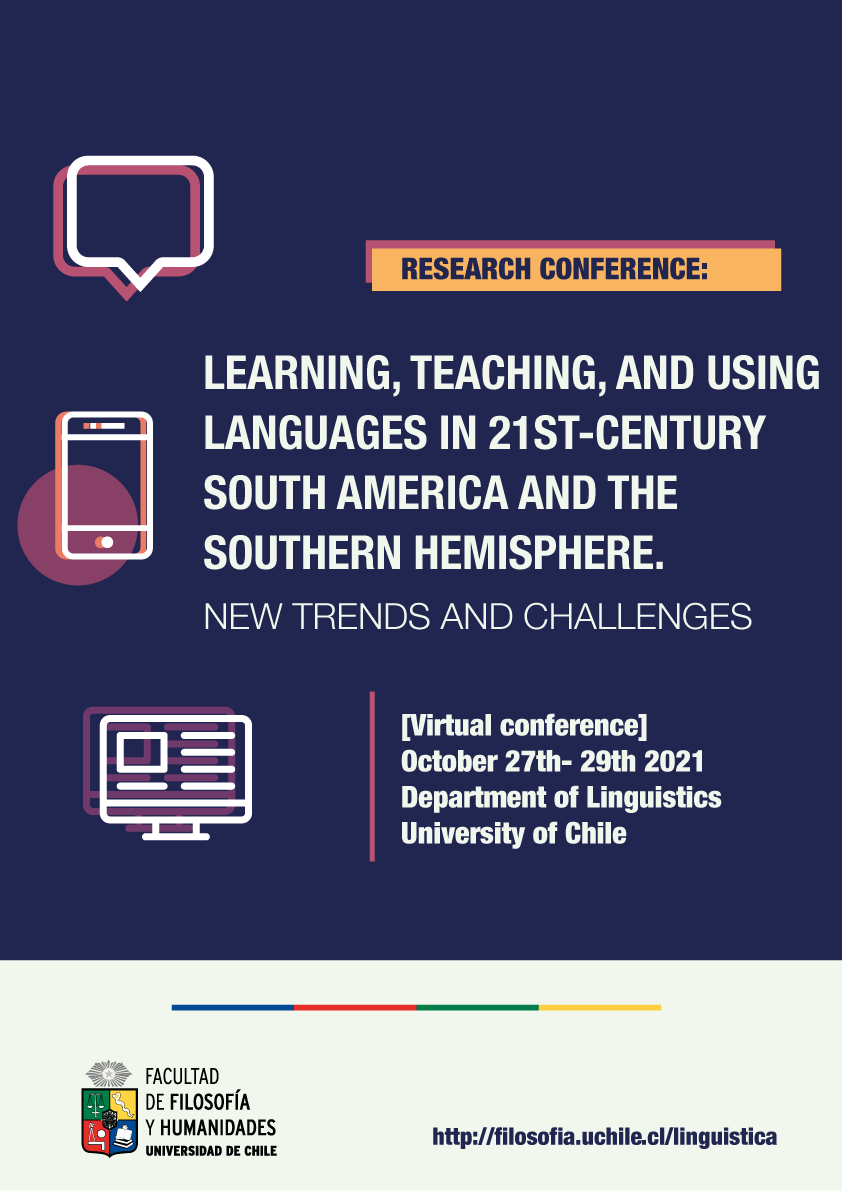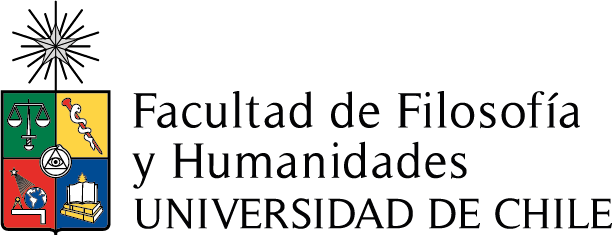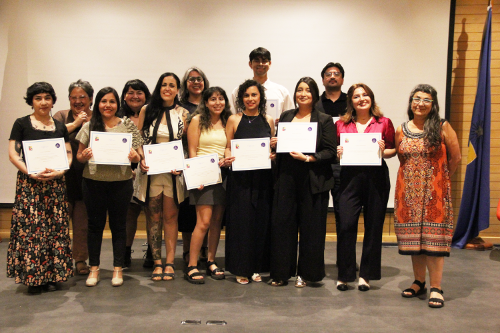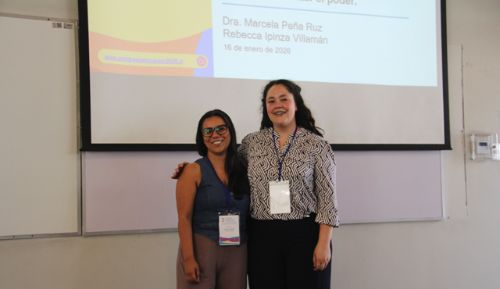 Technology has greatly impacted the way we communicate in this century. This has also affected how students learn languages and has made us question and explore new methods of teaching them. Indeed, because of the ongoing pandemic, we have heavily relied on technology to carry out our work as teachers and, in doing so, we have also put under scrutiny our own teaching methods. This conference explores current research conducted in the field of language teaching, learning and use, in the Southern Hemisphere. The purpose of the conference is to exchange knowledge about what is currently happening in this hemisphere’s classrooms, especially in the light of the use of the Internet as a generalized communicative practice, and the inclusion of remote teaching and learning considering both its benefits and possible drawbacks. In addition to this, this conference highlights the relevance of countries from this hemisphere, which have often been overlooked, treated as rather peripheral to paradigms of research and practice originating in the Northern Hemisphere. Finally, this instance is an opportunity to examine the relation between languages that are taught and learned in this hemisphere and the actual linguistic praxis: their status, relevance, mutual influence, and interaction. This way, this conference may allow us to deconstruct mainstream knowledge and redefine the identity of both language teachers and learners.
Technology has greatly impacted the way we communicate in this century. This has also affected how students learn languages and has made us question and explore new methods of teaching them. Indeed, because of the ongoing pandemic, we have heavily relied on technology to carry out our work as teachers and, in doing so, we have also put under scrutiny our own teaching methods. This conference explores current research conducted in the field of language teaching, learning and use, in the Southern Hemisphere. The purpose of the conference is to exchange knowledge about what is currently happening in this hemisphere’s classrooms, especially in the light of the use of the Internet as a generalized communicative practice, and the inclusion of remote teaching and learning considering both its benefits and possible drawbacks. In addition to this, this conference highlights the relevance of countries from this hemisphere, which have often been overlooked, treated as rather peripheral to paradigms of research and practice originating in the Northern Hemisphere. Finally, this instance is an opportunity to examine the relation between languages that are taught and learned in this hemisphere and the actual linguistic praxis: their status, relevance, mutual influence, and interaction. This way, this conference may allow us to deconstruct mainstream knowledge and redefine the identity of both language teachers and learners.
Call for Papers
-
Speakers can choose to present individual papers or posters in English or Spanish; their abstracts have to be written in the language in which they intend to present..
-
Papers consist of a standard 20-minute presentation, plus 10 minutes for discussion.
-
Posters will be presented during a dedicated session each day. During this block of time presenters will be available to discuss their posters in breakout rooms.
-
Poster presenters will be required to send a short video (up to three minutes) ahead of the conference. These videos will be made available the week of the conference so that attendees can have time to see them before the special sessions.
-
Presenters are requested to include their name, affiliation, and email address in the submitted paper(/proposal).
-
Proposals will be evaluated in terms of quality, significance, originality, thematic relevance, and presentation.
-
Presenters will be allowed to present two papers at most if they submit more than one paper. In the case of posters, presenters will be allowed to present one.
-
There will be 20-minute breaks between sessions.
-
Topics include but are not limited to:
-
Online language teaching and learning (methods, approaches, evaluation, curricular design, etc.)
-
History of language teaching of indigenous, heritage, minority, and foreign languages.
-
Language policies (language endangerment, language revitalization, bi-/multilingual language policies, linguistic rights)
-
Language ideology (native /non-native speakerism, gender perspectives to curriculum design and evaluation, linguicism)
-
Discourse Analysis to Communication in different languages (mass media, video games, social media, learning apps, language exchange apps, etc.)
-
Pragmatics in the use of languages taught in the Southern Hemisphere’s countries in the 21st century.
-
Current and new language labels: LX, FL, Translanguaging and repertoires
-
Abstract submission
Abstract for general submission: 250-300 words (excluding title, author and references) plus one extra page for main sources. A template will be available for authors to use and submit their abstracts.
Sources need to be properly acknowledged using the APA citation style.
File format: .doc or .docx
Font: Times New Roman size 12
Line spacing for abstract body: 1.5
Submission deadline: August 30th, 2021
Notifications of acceptance will be sent by the end of September 2021.
Send submissions to languageconference@uchile.cl
Poster submission
Accepted authors will be invited to submit a short video explanation of their poster (up to 3 minutes), which will be available in advance. During the scheduled poster sessions, authors will interact with attendees in break out rooms.
All submissions must include the first name, last name, and email address of the author best suited to answer questions.
Conference fees
Paper presenters: $35.000 CLP / $50.00 USD
Poster presenters: $30.000 CLP / $43.00 USD
Attendants: $20.000 CLP / $28.00 USD
Registration opens on September 20th 2021




